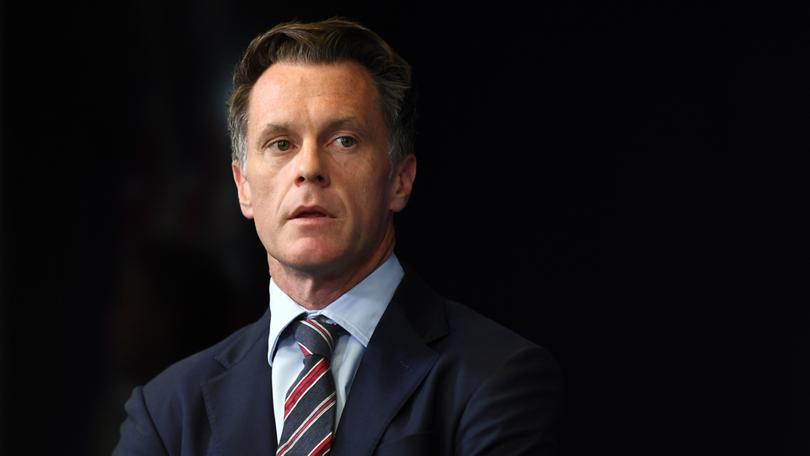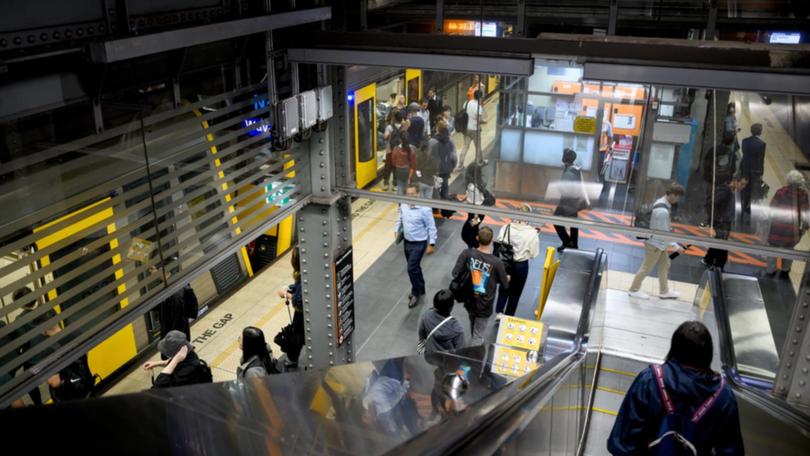Fair Work Commission orders Sydney train drivers back to work as industrial action put on hold
The Chris Minns government has enjoyed a small victory as it fights to stop industrial action derailing the NSW transport system.

The Fair Work Commission has put a stop to the industrial action crippling Sydney’s transport network but only for one week.
The move by the courts to put the action being carried out by the rail and bus union over a pay dispute - which has seen thousands of services cancelled and others run at a snail’s pace - on hold is a major win for NSW Premier Chris Minns whose government has been at war with the union for months.
The Commission has ordered no more industrial action take place until the matter returns to the court on Wednesday after Fair Work Commission president Adam Hatcher delivered an interim order suspending the 300-plus work bans.
Sign up to The Nightly's newsletters.
Get the first look at the digital newspaper, curated daily stories and breaking headlines delivered to your inbox.
By continuing you agree to our Terms and Privacy Policy.A full bench of the commission will on Wednesday rule on the government’s bid to halt the bans immediately and have the industrial umpire resolve the months-long impasse, with the action scrapped in the meantime.
Some 1900 trains were cancelled on Wednesday while another 1000 services were scrapped on Thursday as NSW rail workers ratchet up industrial bans in a bid to force a bumper pay rise.
“We welcome the news from the FWC to issue the interim order for all industrial action to cease until the 424 application is heard. We’re grateful for the outcome,” the NSW Government said.
“Commuters shouldn’t have to suffer while the matter is heard.
“We will always do everything we can in the interests of the people of NSW.
“We simply can’t have a situation like yesterday. It’s intolerable.”
Earlier Minns said the 300-plus work bans, including a fresh three-day round of action, were causing “incalculable” costs to citizens and businesses and had to end
Mr Minns, who cut short his summer break to handle the latest development in the state’s eight-month rail crisis, said officials were forced daily to unpick hundreds of actions to run basic services.
“That’s a joke,” he said.
“You can’t run public transport system in an international city like Sydney, where every morning you have to work out whether running a simple service from Hurstville to Bondi Junction trips up three, four or 10 different industrial bans.
“We don’t know how many small businesses have been smashed because of 50 per cent of trains not running.”

The government’s application to top the industrial action was “nothing more than a desperate attempt to shift the blame for its own failure to negotiate with workers,” the Rail Tram and Bus Union said.
“It engages in cheap political tricks designed at achieving headlines, pays law firms top dollar to bring bogus legal cases, and anything else it can to avoid sitting at the bargaining table,” the union said.
NSW train drivers appear unlikely to accept a marginally increased pay offer of 15 per cent over four years, but their union has until the end of the day to provide an initial response to the government.
The two sides have been at loggerheads since September, with workers calling for four annual wage increases of eight per cent.
Mr Minns defended not putting the government’s offer out to a workforce vote, over the union’s opposition, saying commuters did not have weeks to wait.
But others say waiting was precisely the problem and Thursday’s intervention was months too late.
“It’s no good to come after the chaos and after it’s all blown up, and step in and say, you’re trying to fix it,” opposition transport spokeswoman Natalie Ward said.
Options for refunds or allowing a free travel day are being considered after the premier said fares paid by inconvenienced commuters should be refunded.
Commuter data shows the travelling public have ditched rail where they can after navigating long delays on Wednesday morning.
Trips on Wednesday afternoon peak were down 40 per cent while trains were “very lightly loaded” on Thursday morning, Sydney Trains boss Matthew Longland said.
Passengers were urged to avoid all non-essential travel on Thursday morning as services continued to be cancelled due to the industrial action and severe overnight storms that tore down power lines.
Fewer than three in 10 morning peak trains ran on time.
Sydney Trains has defended docking the pay of workers not completing full tasks, such as crews choosing to staff only half as many inter-city services as normal.
About 75 per cent of NSW’s 13,300 rail workers are union members, mostly with the Rail Tram and Bus Union.
with AAP
